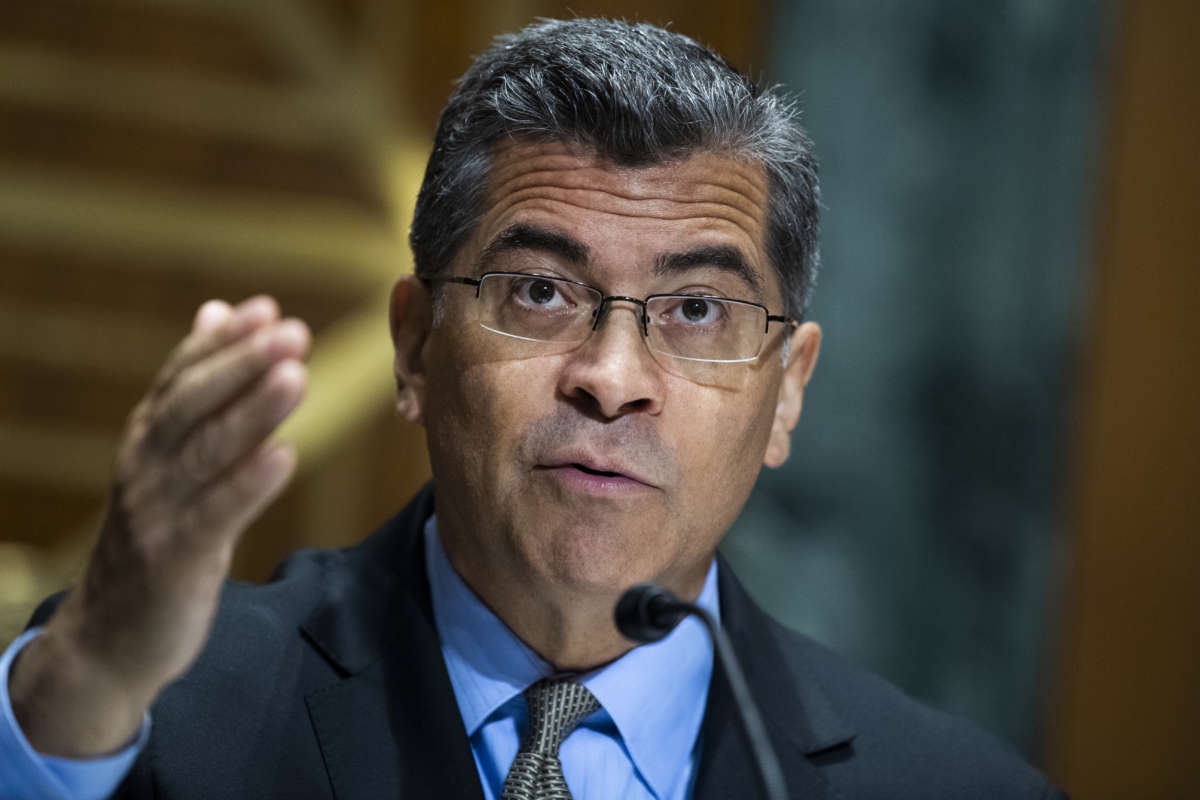The Department of Health and Human Services (HHS) is creating a new office that will focus on addressing the health impacts of the climate crisis, officials announced Monday.
The Office of Climate Change and Health Equity will focus on treating the climate crisis as the public health threat that it is. The agency says it will have a justice-driven mission, striving to identify communities and populations that are most affected by the climate crisis in the U.S. The office will also work to mitigate the health sector’s contributions to the climate crisis, helping health providers and partners to lower their greenhouse gas emissions to comply with regulatory efforts.
“History will judge us for the actions we take today to protect our world and our health from climate change. The consequences for our inaction are real and worsening,” said HHS Secretary Xavier Becerra in a statement. “We’ve always known that health is at the center of climate change, and now we’re going to double-down on a necessity: fighting climate change in order to help protect public health in our communities.”
The new office is created in compliance with President Joe Biden’s all-of-government approach to the climate crisis, which orders agencies to come up with their own ways to address and mitigate the climate crisis. National Climate Advisor Gina McCarthy called the new office “a fight for our health that ensures no community is left behind” in a statement.
The office will be relatively small for now, with HHS requesting just $3 million in funding from Congress for the next year. As Becerra told Politico, however, the office will play a central role in climate-related decision making and environmental justice initiatives for the agency.
In a press release, the agency cited a World Health Organization estimate that the climate crisis will cause an additional 250,000 deaths a year worldwide starting in 2030, though that estimate is likely to be extremely conservative. A study this year, for instance, found that 5 million deaths a year can be attributed to the climate crisis.
Climate change is, indeed, a large contributor to public health issues. Increased drought and heat, and worsening extreme weather events are a huge and growing threat. Air pollution from activities like burning fossil fuels, ground-level ozone due to higher temperatures and even things like pollen and mold are getting worse due to the climate crisis and global warming.
A study by the Natural Resources Defense Council this year found that not only is the climate crisis also a crisis of public health, but it’s also extremely costly for the U.S. health system. Air pollution and climate change cost the country a staggering $820 billion yearly in health costs, a figure that’s only going to grow as the climate crisis continues to worsen, largely unmitigated.
Though everyone is affected by climate change, Black and brown communities and poor communities suffer the most. Redlining and racist permitting policies for fossil fuel infrastructure creates environmentally hostile conditions for poor, nonwhite communities — to the point where there is, for instance, a community in New York named “Asthma Alley” and one in Louisiana known as “Cancer Alley” for their disproportionate numbers of residents afflicted by those health problems.
Those public health impacts compound, too: asthma sufferers are at a greater risk of dying due to COVID-19, for instance. Long-term exposure to air pollution, even for non-asthma sufferers, has also been shown to have negative impacts on a person’s ability to survive COVID.
Press freedom is under attack
As Trump cracks down on political speech, independent media is increasingly necessary.
Truthout produces reporting you won’t see in the mainstream: journalism from the frontlines of global conflict, interviews with grassroots movement leaders, high-quality legal analysis and more.
Our work is possible thanks to reader support. Help Truthout catalyze change and social justice — make a tax-deductible monthly or one-time donation today.
